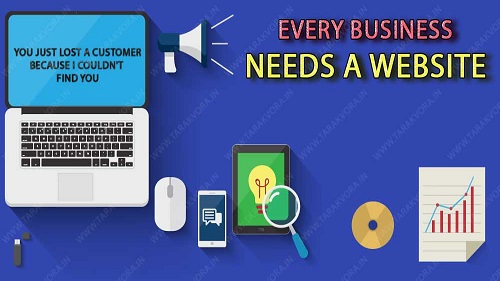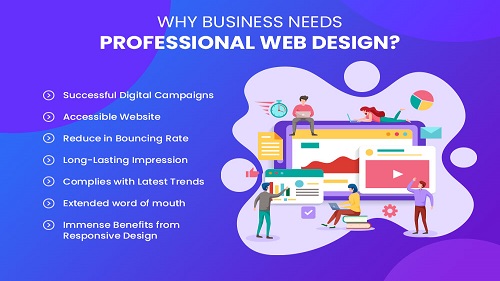Choosing the right small business website designer can make a significant difference in how your business is perceived online. A well-designed website can attract potential customers, build trust, and ultimately convert visitors into paying clients. However, picking the perfect designer for your business can be overwhelming given the many options available in 2024. To help you make an informed decision, we’ll break down the key considerations for selecting the best website designer for your brand.

Why Website Matters for Small Business Success
Your website is more than just a collection of pages on the internet; it’s the heart of your brand’s online presence. It acts as a 24/7 salesperson and the digital face of your company.
First Impressions Count
Your website is often the first thing potential customers see. A clean, professional, and functional website gives visitors confidence in your brand and shows that you take your business seriously. On the flip side, a poorly designed website can turn users away within seconds.
Your Website is Your Online Storefront
Think of your website as your online storefront. Just like you wouldn’t leave a physical store cluttered or poorly organized, your digital storefront must be well-structured and easy to navigate. A good small business website designer understands the importance of creating an attractive, user-friendly website that encourages customers to stay and explore.
Importance of Choosing the Best Small Business Website Designer Services
The right small business website designer is critical to your long-term business success. The decision you make now will affect not just how your website looks. But how it functions and grows with your business.
Long-term Business Success
When hiring a small business website designer, you aren’t just investing in the look of your website. You’re also investing in the future of your business. A great designer ensures your website is scalable, meaning it can evolve as your business expands whether you need new features, pages, or an entirely fresh redesign down the line.
Creating a Unique Brand Identity
A small business website designer should know how to create a website that reflects your brand identity. From the fonts and colors to the tone of the content, every element of your website should feel consistent and meet your business’s values. This unique identity will help differentiate your business from competitors and build brand recognition.
What to Look for in a Small Business Website Designer
Knowing what to look for in a small business website designer can save you time and headaches down the road. Here are some of the key factors to consider when evaluating candidates.
Experience in Small Business Websites
Make sure the designer has experience working with small businesses. Designing for a smaller company often requires a more personalized approach than for large corporations. Look for someone who understands the unique needs of small businesses, including budget constraints and the importance of ROI (return on investment).
Design Portfolio and Style
A designer’s portfolio is like a window into their skillset. Review their previous work to see if their style meets your vision. Some designers specialize in clean, minimalist designs, while others are more focused on bold and creative layouts. Find someone whose design aesthetic matches your brand.
Technical Skills and Knowledge of the Latest Trends
Beyond good looks, a website needs to function smoothly. A qualified small business website designer will be up-to-date with the latest technical trends in web design. Look for someone who understands:
Mobile Optimization
Mobile traffic makes up a huge percentage of website visits. A good website designer knows how to build a website that works just as well on a smartphone as it does on a desktop. Mobile optimization includes ensuring that text, images, and menus are easily accessible on smaller screens.
SEO Best Practices
Search engine optimization (SEO) ensures your website ranks well on search engines like Google. A small business website designer should build your website with SEO in mind from the beginning, using proper heading structures, fast load times, and clean coding practices.
User Experience (UX) Focus
A great-looking website is only half the battle. It also needs to be easy to use. A small business website designer should focus on user experience (UX) by creating simple navigation, clear calls to action, and a seamless overall user journey.
Questions to Potential Website Designer
Once you’ve narrowed down your options, it’s important to ask the right questions to ensure the designer can meet your needs.
What is Your Design Process?
A clear design process is essential for a smooth project. Ask about how they approach a new website design from start to finish. Do they begin with research and wireframes? How do they incorporate feedback from clients? A good small business website designer should have a structured process that allows for collaboration and adjustments along the way.
Can You Share Past Work or Testimonials?
Client testimonials and case studies provide insight into the designer’s track record. Happy clients are a good sign that the designer is reliable and delivers high-quality work. Ask for examples of websites they’ve designed for small businesses to get a sense of what you can expect.
How Do You Ensure SEO Best Practices are followed?
SEO is crucial for getting your website in front of the right audience. Make sure your small business website designer knows how to incorporate SEO elements, such as Meta descriptions, alt tags for images, and keyword-friendly content, into their design process.
Costs and Budgeting for Your Website
When hiring a website designer, it’s important to understand the total cost of the project and plan for future expenses.
What’s Included in Website Design Costs?
Not all website designers include the same services in their pricing. Some may offer a complete package that covers design, development, and initial SEO setup. At the same time, others might charge separately for each element. Get a detailed breakdown of what’s included so you can avoid surprises later on.
Budgeting for Future Website Maintenance
Websites aren’t a one-time investment. They require regular updates to stay secure, perform well, and remain relevant. Make sure to budget for ongoing maintenance, whether that’s updating content, ensuring security protocols, or making small design tweaks over time.
Freelancer vs. Agency: Which is better for Business?
One of the key decisions you’ll face is whether to hire a freelancer or an agency to design your website.
Advantages of Hiring a Freelancer
Freelancers typically offer more personalized attention and flexibility. They can be more affordable than agencies, especially for small businesses with tight budgets. Additionally, working with a freelancer means you’ll usually be in direct contact with the person handling your project.
Advantages of Working with an Agency
Agencies, on the other hand, bring a full team of designers, developers, and SEO experts to the table. This can result in a more polished final product and faster turnaround times. Agencies are also more likely to offer ongoing support and additional services like marketing or branding.
Which Option Suits Your Needs?
Your choice between a freelancer and an agency depends on your specific needs, budget, and the scope of your project. For smaller, straightforward websites, a freelancer might be the perfect fit. For more complex projects or businesses looking for a long-term partner, an agency could be a better option.
Avoid When Hiring a Small Business Website Designer
As with any hiring process, there are potential pitfalls to be aware of.
Poor Communication or Responsiveness
If a designer is hard to reach during the early stages of your project, it’s unlikely their communication will improve once work begins. Timely and clear communication is essential to ensure the project stays on track.
Unclear Pricing or Hidden Fees
Transparency is key when it comes to pricing. If a designer is vague about costs or tries to slip in hidden fees, that’s a red flag. Make sure everything is clearly outlined in a contract before any work starts.
Lack of a Portfolio
A reputable small business website designer should have a portfolio of past work. If they can’t show you previous projects or provide testimonials, proceed with caution.
How to Collaborate Effectively with Website Designer
To get the best results from your website designer, you’ll need to collaborate effectively.
Define Clear Goals and Expectations
Before any design work begins, clearly define what you want to achieve with your website. Are you looking to generate leads, build brand awareness, or sell products online? The more specific you can be about your goals, the better your designer will be able to meet them.
Provide Regular Feedback and Updates
A website project is a collaborative effort. Make sure to give your designer regular feedback and updates throughout the process. This will help avoid misunderstandings and ensure the final product meets your expectations.

Key Features to Prioritize in Website Design
When working with your small business website designer, it’s important to focus on key features that will make your website not only attractive. But also highly functional and effective at converting visitors into customers.
User-Friendly Navigation
A website must be easy to navigate. If your visitors can’t find what they’re looking for within a few clicks, they’re likely to leave and never return. Work with your designer to ensure that your website’s layout is simple with clear menu structures, search functions, and easy access to essential information like contact details and services.
Fast Load Times
Website visitors expect fast performance. If your website takes more than a few seconds to load, you’ll lose potential customers. Make sure your small business website designer understands the importance of optimizing your website’s performance, including reducing image sizes, using efficient coding practices, and utilizing content delivery networks (CDNs) to speed up load times.
Strong Calls to Action (CTAs)
A good website design isn’t just about aesthetics—it’s about getting results. Your website should guide visitors toward taking specific actions, such as making a purchase, signing up for a newsletter, or contacting you for more information. Collaborate with your designer to create prominent and convincing CTAs that stand out on the page and encourage user engagement.
Secure and Reliable Hosting
Your website needs to be secure and reliable, especially if you’re handling customer information or processing online payments. Choose a small business website designer who can recommend secure hosting services that protect your data and provide the reliability you need to keep your website up and running 24/7.
Integrating Analytics and Tracking Tools
To measure your website’s success, it’s essential to have analytics in place. Tools like Google Analytics allow you to track important metrics such as traffic sources, visitor behavior, and conversion rates. Ensure your small business website designer can integrate these tools into your website so you can monitor performance and make data-driven decisions for future improvements.
SEO and Content Marketing Integration
For small businesses, having a website that looks great isn’t enough—you also need to make sure potential customers can find it. That’s where search engine optimization (SEO) and content marketing come into play.
SEO-Friendly Structure
A website designed with SEO in mind will rank better on search engines like Google, driving more organic traffic to your website. Work with your small business website designer to ensure that your website is built using SEO best practices, such as clean coding, fast load times, mobile optimization, and proper URL structure.
Content Marketing for Engagement
A well-designed website also includes relevant, engaging content that speaks to your audience’s needs. Your small business website designer can help you create a content layout that makes your blog posts, videos, and other resources easy to access and share. High-quality content not only improves your SEO. But also builds trust and positions your business as an authority in your field.
Designing for Accessibility and Inclusivity
Inclusivity and accessibility are no longer optional—they’re essential. A website that is accessible to all users, regardless of their abilities, is not only ethically important. But it also helps expand your audience and comply with legal standards.
Web Accessibility Guidelines (WCAG)
Ensure your small business website designer is familiar with Web Content Accessibility Guidelines (WCAG). These guidelines cover everything from text readability to keyboard navigation, ensuring that people with disabilities can interact with your website. Features like alt text for images, color contrast adjustments, and screen reader compatibility are essential to making your website accessible.

Future-Proofing Your Website
Technology and design trends evolve rapidly, and your website needs to be adaptable. Future-proofing ensures your website can evolve with your business and the web development world.
Scalable Design for Business Growth
Your small business website designer should build your website with scalability in mind. This means leaving room for additional features, such as e-commerce functionality, additional product or service pages, and even new branding elements. A scalable design saves you time and money down the road when you need to expand your website.
Updating Content and Design Trends
Your website’s content and design will need to be updated periodically to stay fresh and relevant. A good designer will create a website that’s easy to update either through a content management system (CMS) like WordPress or by providing you with the tools you need to make simple changes on your own.
Building Trust Through Design
Trust is a crucial element in online interactions and your website’s design plays a significant role in building it. Customers need to feel confident that your business is legitimate and trustworthy before they consider making a purchase or contacting you for more information.
Use of Social Proof
Social proof, such as customer testimonials, reviews, and case studies, can reassure potential clients that your business is credible. Please work with your designer to strategically place this content on your website where it will have the greatest impact, such as on your homepage or service pages.
Professional Design and Copywriting
A professional website design paired with well-written copy can make a huge difference in how trustworthy your brand appears. Invest in quality design and content to ensure your website leaves a positive impression.
Website Maintenance and Long-Term Support
Once your website is live, the work doesn’t stop. Regular maintenance is key to ensuring your website remains secure, functional, and up to date.
Ongoing Maintenance Services
Many small business website designers offer ongoing maintenance packages. These services typically include software updates, security checks, and backups to keep your website running smoothly. Discuss maintenance options with your designer before the project begins so you know what to expect after launch.
Support for Future Changes and Updates
As your business evolves, you may need to make changes to your website. Whether you want to update your services, add new content, or refresh the design. It’s important to have a designer who can provide support for these updates. Make sure you clarify how future changes will be handled and whether they are included in your initial contract.
Data Security and Protection
Data security is a top priority, especially for small businesses handling customer information, such as payment details and personal data. Your website must comply with data protection regulations to avoid legal issues and protect your customers.
Secure Payment Gateways
If your website includes e-commerce functionality, your designer must integrate secure payment gateways that comply with industry standards. Look for trusted payment processors like PayPal or Stripe, and ensure that SSL certificates are in place to encrypt sensitive data.
Compliance with Data Protection Regulations
Data protection regulations like GDPR (General Data Protection Regulation) are stricter than ever. Make sure your small business website designer is familiar with these regulations and can implement features such as cookie consent banners, privacy policies, and secure data storage practices.
FAQs
How long does it take to design a website?
It depends on the complexity of the website. Simple designs may take a few weeks, while more complicated ones can take months.
Do I need to hire a separate SEO specialist?
Many website designers incorporate SEO into their services, but for more advanced needs, hiring a dedicated SEO specialist may be helpful.
How can I ensure my website will work on mobile devices?
Choose a designer who specializes in mobile-responsive design. Always test the website across multiple devices before launch.
Should I choose a website builder or hire a designer?
Website builders are great for simple needs, but if you want a custom, unique design, hiring a professional designer is the way to go.
What happens if I need changes to my website after it’s launched?
Most designers offer maintenance services or support packages. Make sure to discuss this upfront to avoid future surprises.
Conclusion-
Choosing the right small business website designer is one of the most important decisions you’ll make for your brand’s online presence. By considering factors such as design portfolio, SEO knowledge, technical skills, and long-term support, you can select a designer who will help your business succeed. By following these steps and understanding the role of a small business website designer, you’ll be able to find the perfect partner to build a website that drives results for your brand in 2024 and beyond.
Choosing the right website designer can make a world of difference for your business. By understanding what to look for, asking the right questions, and collaborating effectively, you’ll be well on your way to a successful online presence in 2024.
If you enjoyed this article about the best small business website designer, share your thoughts in the comments below! Please visit www.uniqueincs.com for more valuable content and claim your free e-book. Plus, explore discounted Digital Marketing Products to boost your business!
Improve your digital presence with an innovative website design that seamlessly integrates style and utility. Connect with Unique Web Online, using the most current trends and technologies to create visually pleasing and user-centric websites customized to increase your brand. Always prepared to captivate your audience and make a lasting impression, Unique Web Online invites you to create a digital experience that distinguishes you. Explore our portfolio and get started on the path to a striking, responsive, and effective website today.

